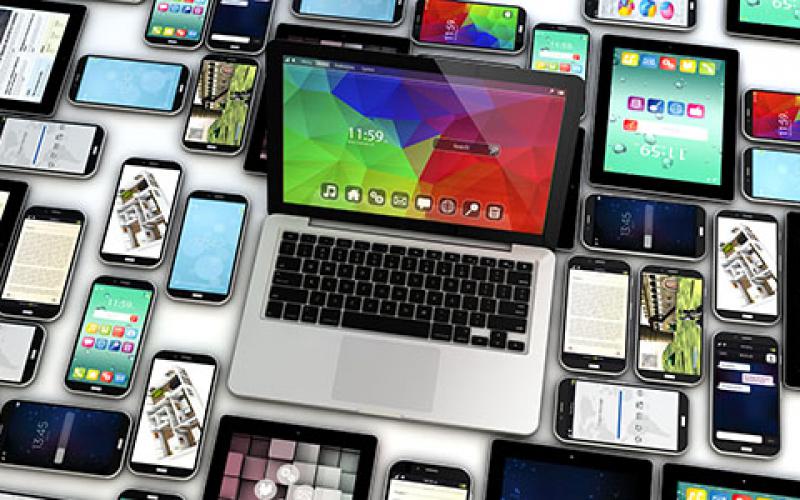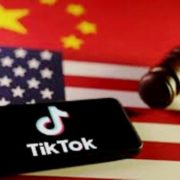By Marozoka Oruame
Is your mobile phone device ‘Typed Approved’ by the Nigerian Communications Commission (NCC)? Chances are your cute Smartphone is among the millions of counterfeit mobile devices that make up the global grey market for fake phones. Those devices will not last! They will not give you the deserved advantage to experience good quality of service (QoS) from telecom service providers; and they could constitute health hazards to your continuous wellbeing.
To safeguard consumers’ interest and to ensure that Nigeria does not become a dumping ground for substandard or fake cell handsets, the NCC has consistently enforced the law on Type Approval of mobile handsets/devices or any other telecommunications equipment.
By law, all telecommunications devices including mobile handsets and other telecommunication equipment must be Typed Approved by the Commission, which has statutory powers to ensure that Technical Standard is met on equipment and services provided within the telecommunications sector. One of the ways the NCC performs this duty is through Type Approval of all mobile handsets before they are sold in the market.
In what has become a tradition by the telecom regulator, it recently asked that Nigerian telecom consumers should take steps to ensure that the mobile devices or terminals they desired to purchase are already type-approved by the Commission. A consumer can easily and quickly verify if a mobile device is type approved by going online to the NCC’s website: www.ncc.gov.ng before concluding any purchase.
The Commission’s Director of Technical Standard and Network Integrity, Engr Bako Wakil reiterated that consumers should verify that mobile devices including tablet PCs, laptop and other mobile terminals are type-approved so as to avoid buying fake or counterfeit products.
This is important as fake phones undermine quality of service and often create more problems than the perceived desired affordability in terms of pricing.
“Oftentimes, telecom consumers complain of poor network services while unknown to them, it is the quality of their mobile devices that is the cause of the problem. This is the reason the commission is appealing to every consumer to check the NCC website before purchasing any model of their desired devices,” said Wakil.
He added: “We have model number list of the type-approved mobile devices either mobile phones, tablets, laptops or any devices that will be connected to the national network.”
Fake devices on the rise
Fake mobile devices are becoming more rampart globally and expectedly in Nigeria, Africa’s largest market for telecom services with more than 180 million telephone subscribers. Counterfeit phones or devices are not easy to tell. They look and behave like the original. Buyers are usually unaware that they are purchasing grey market products because of the striking similarities they tend to share with the original.
While there are buyers who unconsciously fall victims to purchases of counterfeit phones, there are others who intentionally buy fake phones as they are more inclined to purchase a mobile device because of the ‘brand name’ offered at a relatively cheaper price compared with the original.
But the truth is while a fake phone is a much more affordable alternative to an original, it would never offer the same value as the original, the Operating System (OS) would not be the same and it would not guarantee you the life-span as the original.
The Mobile Manufacturers Forum (MMF) revealed that the global economy loses about $6 billion yearly to substitute or fake phones due to grey market activities. According to another report, the Standards organisation of Nigeria (SON) believes the amount of fake phones in the Nigerian market has increased by almost 50% within the last three years.
Cheap is dangerous
The downsides of counterfeit phones are negatively disruptive. Fake phones threaten the integrity of a company and could ultimately erode market confidence in popular brand that is counterfeited
Fake increases cyber-security related threats, creates a safety hazard for users because of the defective or inadequate components. According to the MMF, fake phones pose growing threats to consumer health and safety as they are not tested for compliance and also contain dangerously high levels of lead and calcium in phone parts exposed to the consumers.
Another major economic headache is that if there are a lot of fakes of a particular company or brand in a particular market or country, it will discourage the company from marketing their products in that country, forcing them to take their business elsewhere. This is bad as it scares away investors needed to boost a country’s economy. Counterfeit phones constitute real threats to the economy.
NCC persistently fighting merchants of fake devices
That is why consumers’ awareness campaigns carried out persistently by the NCC are critical to fighting merchants of fake mobile devices.
Last year, the NCC hosted a workshop to sensitise and educate stakeholders including licensees and consumers on the need for type-approval of mobile devices. The workshop is part of a long term strategy, running for over a decade now, to use consumers’ awareness to fight counterfeit products in the market.
In 2019, the Commission took messages on dangers of fake handsets to the grassroots as it held a sensitization and knowledge-sharing programme in Paiko, near Minna, Niger State, on how mobile handsets that are not type-approved by the regulator could impact negatively on the health of consumers.
These workshops and several others are part of numerous campaigns to directly enlighten consumers on counterfeits and how to avoid them by leveraging the type-approval resources of the NCC.
Wakil explained that sensitisation exercises are designed to allow the commission effectively regulate the industry by ensuring that compliance on the part of licensees to extant industry type approval regulation. According to him, the overall aim is to ensure industry interoperability, quality of service and safety.
NCC, ONSA set up committees to combat counterfeit mobile devices
Also in 2019, the telecom regulator took further steps in the fight against counterfeit mobile devices. Two joint committees were set up by the Office of the National Security Adviser (ONSA) and the NCC in collaboration with other government agencies to tackle the menace of counterfeit communication devices.
The two committees are the Project Steering Committee (PSC), comprising the Infrastructure Concession Regulatory Commission (ICRC), the Federal Ministry of Communications and the NCC; and the Project Delivery Team (PDT) with representation from the Federal Ministry of Communications (and Digital Economy), the ICRC, the Federal Ministry of Finance and the NCC.
Both committees are to work together to ensure the implementation of Mobile Devices Management Systems (DMS), a Public-Private Partnership project, created to combat the proliferation of fake, counterfeit, substandard and cloned mobile communications devices in the telecoms industry.
While inaugurating the committees, the Executive Vice Chairman (EVC) of NCC, Prof. Umar Garba Danbatta, said the move was in line with the mandate of the Commission, as enshrined in the Nigerian Communications Act (NCA) 2003, to type-approve all devices used in the telecommunications industry and to ensure that all devices used in the telecommunications industry are in line with agreed standards and specifications.
IMEI and other tools to fight fake mobile devices
The consumers also have a role to play in reducing the risks of counterfeits phones by leveraging tools from the Global System for Mobile Communications Association (GSMA) which manages the International Mobile Equipment Identity (IMEI). The IMEI is a globally recognized system to uniquely identify mobile phones manufactured in accordance with internationally agreed safety and quality standards.
Consumers should therefore check the IMEI of their mobile phones or phones they are about to acquire against the database of legitimate mobile devices managed by the GSMA. The consumer can just dial the code “*#06#” and the IMEI will automatically be displayed on the phone screen. Most times counterfeit phones do not have IMEI or might use a fake one which would not be reflected in the GSMA IMEI database. The MMF also created a website providing information for users on how to detect counterfeit phones.
Also Read: NCC Takes Messages On Dangers Of Fake Handsets To Grassroots
Type Approval standard by the NCC
Type Approval standard set by the Commission is based on international standards.
The Commission is empowered by the “Nigerian Communications Act 2003 to establish and enforce standards for all telecommunications equipment in operation in the Federal Republic of Nigeria to ensure that they operate seamlessly and safely within the Nigerian telecommunications environment.
“All equipment manufacturers, vendors and operators, including customer devices such as mobile phones and wireless adapters, must therefore ensure that their equipment conform to the applicable standards as mandated by the Commission before bringing them into Nigeria.
“To ensure maximum interoperability and affordability for consumers, the Type Approval standards set by the Nigerian Communications Commission are based on international standards from:
- The International Electrotechnical Commission (IEC) and its International Special Committee on Radio Interference (CISPR)
- The European Committee for Electrotechnical Standardization (CENELEC).
- The European Telecommunications Standards Institute (ETSI).
“These standards have been chosen because:
- They represent international practices as developed in many countries.
- Nigeria adopts practices predominantly like those adopted in Europe (for example, by being in ITU World Region 1 for spectrum allocation and by using GSM very extensively).
- The ETSI standards incorporate a layered structure that allows different concerns (such as electromagnetic compatibility and physical interoperability) to be analysed separately.
- The ETSI standards, and all the supporting technical reports, are free and easily obtained (for example, from their site).”
You Might like to read this: NCC, ONSA Set Up Committees To Combat Counterfeit Mobile Devices
SOME QUICK POINTS TO NOTE ON TYPE APPROVED HANDSETS
- All equipment and devices not Typed Approved by the NCC are illegal. They violate section 132 of the Nigerian Communications Act of 2003 which empowers the NCC to Type Approve and enforce the Law on Type Approval.
- Dealers/companies or any person(s) dealing in mobile handsets are under obligation to get Type Approval for such devices/equipment before they are offered for sale.
- As part of its enforcement campaigns, the Commission has, in the recent past, sealed offices of mobile phone manufacturers and peddlers of unapproved phones in the country. Offenders are liable to face penalties which include but not limited to prosecution, fine and confiscation of devices that are not type approved by the Commission.
- Substandard handsets contribute to poor quality of service on the network. The attraction is usually their low price tag. But consumers often spend more on servicing such handsets. Buying substandard handset is a waste of money and time.
- Fake cell phones have health implications on the populace. To ensure compliance with the law, NCC works in partnership with the Nigerian Customs Services (NCS) and the Phone and Allied Dealers Association of Nigeria (PADAN) to eliminate substandard handsets.
- The Commission deems it IMPORTANT to regularly provide Consumer Information on fake or substandard handsets not Typed Approved as a way to address the issue of substandard handsets.
- Before making your purchase as a Consumer, take time to check the list of Typed Approved handsets by the Nigerian Communications Commission (NCC) on their website: www.ncc.gov.ng
One of the kind: NCC Holds Type Approval Meeting In Lagos Against Fake Telecom Equipment





























